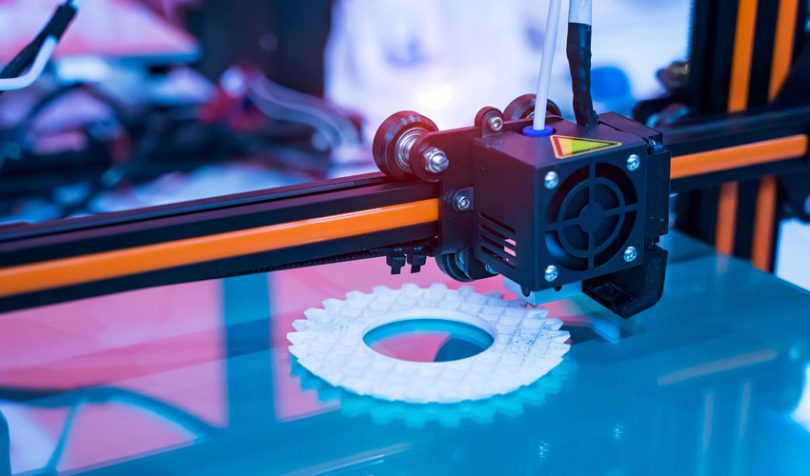3D printing, or as the manufacturing industry prefers to call it ‘additive manufacturing’, is used to build critical industrial parts including for the aviation or power generation industries. It’s hard to overstate the importance of using the correct design version or the right quality of metallic components. Hence GE has created a blockchain to manage the supply chain for the additive manufacturing process, one that it says is secure enough for the high-performance world of quantum computing.
“We can create networks that allow for fine-grain control of materials flows, data, intellectual property and identity along the entire additive digital thread,” said Benjamin Beckmann, GE Research’s Blockchain Leader. “The goal here is to provide security for the entire additive process from powder to print.”
Some of the parts that GE builds use highly reactive metallic powders which have a limited shelf life. This is one example of the importance of efficiently managing the supply chain process for additive manufacturing.
GE Research developed the blockchain platform at its Forge Lab. The company says that “the platform combines the need for pervasive data integration with a high degree of cryptographic communications and data storage enabled by quantum communication channels and ultra-fast quantum key distribution technologies.”
GE doesn’t believe the blockchain framework is limited to its own use. “We’re working on a range of applications addressing industrial-grade requirements for industrial, energy, healthcare, and the defense industries,” said Beckmann.
John Carbone, Principal Engineer at GE Research, gave some insight into how it works. “In the network, each identity associated with devices, designs, machines, materials, components and people can be quickly verified, qualified, documented and managed in an automated fashion with the highest degree of data integrity and assurance.”
Other divisions of GE are also exploring blockchain. GE Power participated alongside numerous prominent name participants in a study exploring blockchain for energy organized by the German energy agency Dena.
GE Aviation has an existing program called TruEngine for verifying that engines have been properly maintained, which is important for their re-sale. CoinDesk recently reported that GE Aviation is working on a blockchain solution for TruEngine with Microsoft Azure. A similar solution not limited to engines has been developed by Honeywell Aviation.






